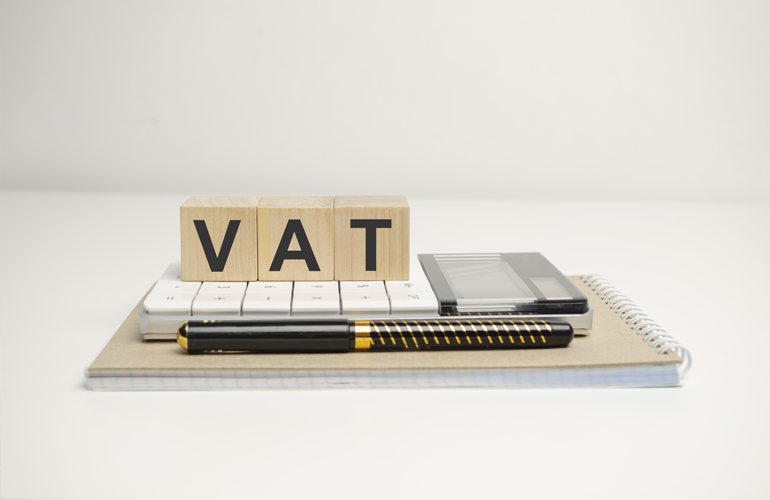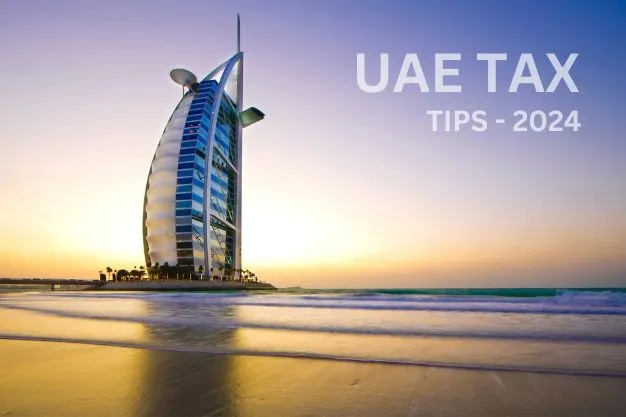Decoding Tax Regulations for Qualifying Free Zone Enterprises in UAE Corporate Taxation.
Navigating the complex world of business taxes in the UAE means being aware of Qualifying Free Zone Persons (QFZPs). We’ll explore how they are taxed, their activities, the De minimis rule, and why you might need a tax expert.
What is the Corporate Tax Rate on Qualifying Free Zone Person?
Tax for Qualifying Free Zone Persons:
a) No tax on Qualifying Income
b) 9% tax on other income that’s not Qualifying Income.
Who is considered a Qualifying Free Zone Person?
A Free Zone Person must:
a) Have a real presence in the country
b) Make Qualifying Income
c) Not choose to pay corporate tax under Article 19
d) Follow specific rules stated in Articles 34 and 55
e) Meet other conditions set by the Minister.
What is a Qualifying Income for Corporate Tax?

Qualifying income is money earned in specific ways:
a) Income from deals with other free zone people (except income from excluded activities).
b) Income from deals with non-free zone people but only for qualifying activities not excluded activities.
c) Any other money if the free zone person meets the de minimis requirement.
d) As long as the money from categories (a, b, and c) is not connected to a local or foreign permanent place of business or ownership or exploitation of immovable property
e) Income that comes from anyone connected to (a) or (b).
Which are the Non-qualifying income subject to 9% corporate tax?
a) Income linked to domestic establishments.
b) Income linked to foreign establishments.
c) Income from non-commercial property in the free zone.
d) Income from non-free zone people for commercial property in the free zone.
List of Qualifying Activities for QFZPs
The UAE gives special tax benefits to QFZPs. Businesses qualify by doing the activities listed for these tax benefits.
- Manufacturing: Companies involved in manufacturing operations in the free zone.
- Assembling: Businesses engaged in assembling goods in the free zone.
- Services: Specific services like consulting and IT services, and similar activities.
- Investment: Companies that own stocks or other financial instruments.
- Headquarters: Businesses operating as regional headquarters for multinational corporations.
- Holding Companies: Companies engaged in holding and managing investments in subsidiaries.
List of Excluded Activities for QFZPs
a) Deals with regular people, except transactions about qualifying activities specified under (d), (f), (g), and (j).
b) Banking
c) Insurance Activities other than the activities specified under (e) of qualifying activities
d) Finance and leasing activities other than those specified under (i) and (j) of qualifying activities
e) Ownership or exploitation of Immovable Property, except for commercial property in the free zone with other free zone parties.
f) Ownership or exploitation of intellectual property assets
g) Any activities connected to the above activities
The De minimis rule is vital for QFZPs. It says that if a Qualifying Free Zone Person makes money from non-qualifying activities, it must not exceed a specified limit. If it does, the QFZP might lose its tax-exempt status.
- A Qualifying Free Zone Person can’t earn more than:
a) 5% of their total income
b) Or AED 5,000,000, whichever is less, from non-qualifying income in a tax period.
- Non-qualifying revenue comes from:
a) Excluded activities
b) Activities that aren’t qualifying, and the other party isn’t a Free Zone Person.
- Total revenue is all revenue derived by the QFZP
Some income is left out when figuring non-qualifying and total income. This includes income from:
a) Property in the free zone, like deals with non-free zone people for commercial property and any property that isn’t commercial.
b) Income from domestic or foreign permanent places of business.
For example, if a QFZP does activities that don’t qualify and earns too much from them, it might have to pay taxes on all its income.
The Role of a Tax Consultant
Understanding the tax implications, especially in a dynamic environment like the UAE, requires expertise and vigilance. Here’s where a professional tax consultant proves invaluable:
Interpretation of Regulations: Tax consultants are well-versed in tax regulations and can explain complex rules, ensuring that businesses maintain QFZP status.
Strategic Planning: With a deep understanding of the taxes, consultants can assist businesses in planning activities to maximize tax benefits legally.
Compliance Management: Tax experts help businesses follow tax rules, suggest changes, help with audits, and manage assessments.
Catalyst Tax Consultants in Dubai: Your Catalyst for Financial Success
Navigating the complexities of tax rules for Qualifying Free Zone Persons in the UAE often requires help from a tax consultant. The Catalyst Tax Consultants in Dubai is a standout tax team with skilled accountants and financial experts. They shine in financial reporting, compliance, tax planning, and understanding UAE corporate taxes. Their unmatched expertise and track record, catalyze financial success by providing customized tax services for businesses in the UAE.





